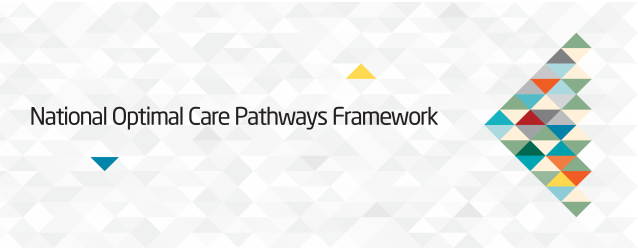Cancer Australia has today published the National Optimal Care Pathways Framework (OCP Framework) and the Optimal care pathway for Aboriginal and Torres Strait Islander people with cancer Second Edition. These two publications reflect the Government’s commitment to improving cancer care and equitable outcomes, particularly for Aboriginal and Torres Strait Islander people and communities.
Delivering optimal cancer care and enabling a high performing health system is critical to excellence in outcomes and experience for all Australians. Optimal Care Pathways (OCPs) set the benchmark for quality cancer care across different cancer types and population groups, outlining consistent, safe, high quality, and evidence-based care.
The OCP Framework standardises the development, update, evaluation and uptake of OCPs, including for priority population groups. By standardising these elements, the Framework will support consistent approach to OCPs, promoting equity in access to optimal care services and reducing unwarranted variation in cancer care.
The release today of the Optimal care pathway for Aboriginal and Torres Strait Islander people with cancer Second Edition in tandem with the publication of the OCP Framework underscores the importance of culturally safe and competent care. This updated OCP aims to reduce disparities in cancer outcomes by addressing the specific needs and challenges of Aboriginal and Torres Strait Islander people.
For more information on the National Optimal Care Pathways Framework and the updated Optimal Care Pathway for Aboriginal and Torres Strait Islander people with cancer Second Edition, please visit the OCP webpage here.
Quotes attributable to Professor Dorothy Keefe, CEO Cancer Australia:
"The National Optimal Care Pathways Framework establishes standards and priorities that will enable the Australian health system to consistently deliver optimal care and achieve world class outcomes for all Australians with cancer.”
"The updated Optimal care pathway for Aboriginal and Torres Strait Islander people with cancer is central to ensuring First Nations people receive care that is respectful, accessible, and responsive to their specific needs. This is an essential step towards closing the unacceptable gap in cancer outcomes for Aboriginal and Torres Strait Islander communities."
“I urge all health professionals and health services to adopt Optimal Care Pathways into practice to deliver consistent, high-quality care. Together we can collectively raise the national standard for evidence based, culturally safe cancer care and make a real difference in improving cancer outcomes for all Australians."

